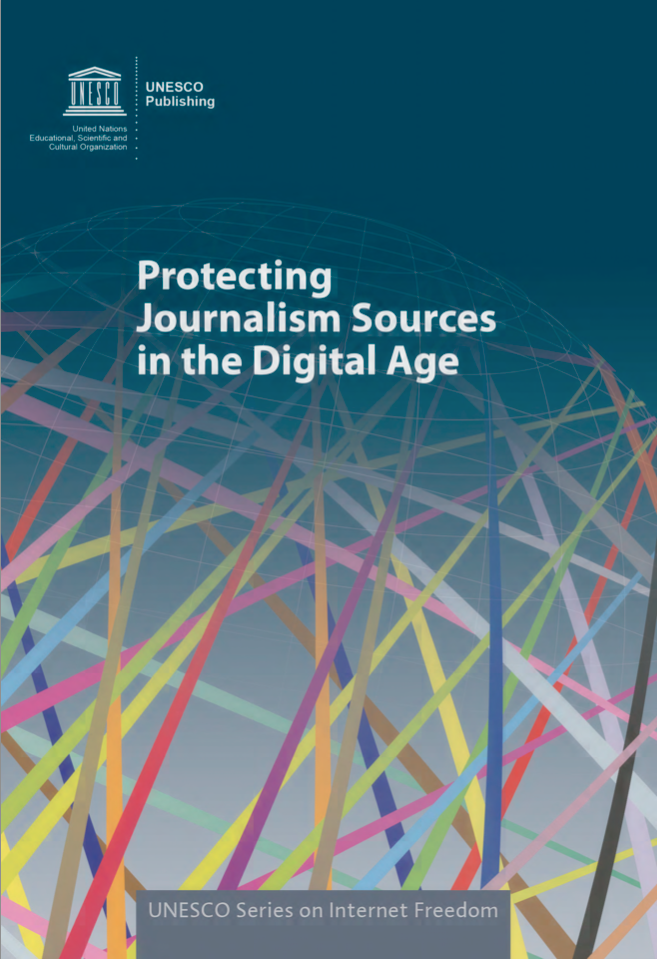The new UNESCO-study Protecting Journalism Sources in the Digital Age examines the growing risks confronting forms of journalism dependent upon confidential sources and whistleblowers. The research seeks to assess the evolution of protective legal frameworks that support protection of journalistic sources and provides recommendations for the future of journalistic source protection.
“Citizens need to be able to reveal major injustices and corruption without fear of reprisals and source protection frameworks are an essential component in this practice,” said the author Ms Posetti. “However, in the Digital Age, laws protecting journalists from being forced to reveal their sources are under significant threat of erosion, restriction and compromise”.
The findings shows the legal frameworks that support protection of journalistic sources are under significant strain. This represent a direct challenge to the established universal human rights of freedom of expression and privacy, and one that especially constitutes a threat to the sustainability of investigative journalism.

About the report: This is the ninth edition in the UNESCO Internet Freedom Series and it covers 121 UNESCO Member States during the period 2007-2015. UNESCO started commission this series of publications on Internet Freedom In 2009, aiming to explore the changing legal and policy issues of Internet and provide its Member States and other stakeholders with policy recommendations aiming to foster a conducive environment to freedom of expression on the net.
UNESCO recently published another report on the issue of safety of journalists. The report, named An attack on one is an attack on all, looks at the innovative, successful ways in which media companies, individual journalist and civil society organisations are coming together to improve journalists' safety and end impunity.
Mia Jonsson Lindell
